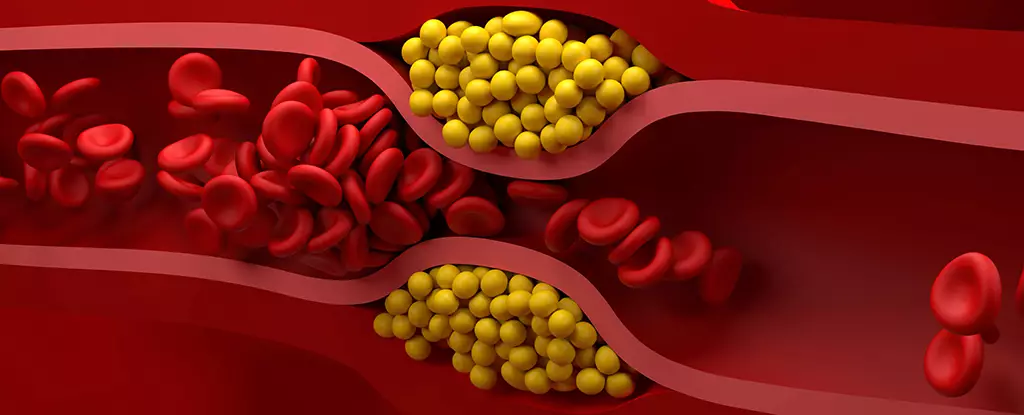The prevalence of high cholesterol in the United States has become a pressing health concern, affecting nearly 40% of adults. Elevated levels of “bad” cholesterol, specifically low-density lipoproteins (LDLs), can lead to severe health complications such as arterial blockages, reduced oxygen flow to the heart, blood clots, and even strokes. Despite the importance of addressing this issue, the development of an effective and affordable solution has been challenging. However, a potential breakthrough has emerged in the form of a new vaccine currently under development.
Targeting Proprotein Convertase Subtilisin/Kexin Type 9 (PCSK9)
Researchers from the University of New Mexico and the University of California, Davis have made significant progress by targeting a specific protein called proprotein convertase subtilisin/kexin type 9 (PCSK9), which is known to play a crucial role in regulating LDL levels. When an excess of PCSK9 is present, it interferes with the function of special receptors on liver cells responsible for maintaining safe LDL levels. This disruption leads to ineffective receptors and an increase in circulating bad cholesterol.
The innovative approach adopted by the researchers involves utilizing a non-infectious virus particle as the foundation for the vaccine. By attaching tiny fragments of PCSK9 to this viral shell, the immune system recognizes and neutralizes the harmful protein. This triggers an immune response that successfully targets and reduces the levels of bad cholesterol in the body.
In trials conducted on mice and monkeys, the vaccine demonstrated its potential by reducing LDL levels by up to 30%. These results are comparable to the effectiveness of current PCSK9 inhibitors, but with the added benefit of being potentially more affordable. Molecular geneticist Bryce Chackerian from the University of New Mexico highlights the importance of developing a solution that is both cost-effective and accessible to a wider population, transcending geographical boundaries.
Future Prospects
While the vaccine remains in the developmental stage and yet to be tested on humans, the positive outcomes from animal trials offer hope for the near future. Further studies and funding are essential to move forward with human trials, with the ultimate goal of providing an effective and affordable solution for individuals struggling with high cholesterol. If successful, this groundbreaking vaccine could significantly reduce the global burden of cardiovascular disease, which claims approximately 18 million lives each year.
Looking Ahead
Although the development of a viable vaccine suitable for human use may take up to a decade, the potential benefits make this investment worthwhile. The ability to curb the alarming rates of heart-related complications and meet the healthcare needs of individuals worldwide is a crucial objective. The research team led by Bryce Chackerian maintains an optimistic outlook, expressing their hope for a vaccine in people within the next 10 years.
The development of a vaccine targeting PCSK9 shows immense promise in combating high cholesterol levels. By leveraging a non-infectious virus particle, this innovative approach offers an affordable alternative to current therapies. While significant progress has been made, further research and trials are necessary to determine the long-term effectiveness and safety of the vaccine. Nevertheless, the potential to save millions of lives globally and revolutionize the treatment of high cholesterol makes this breakthrough a beacon of hope in the medical field.



Leave a Reply